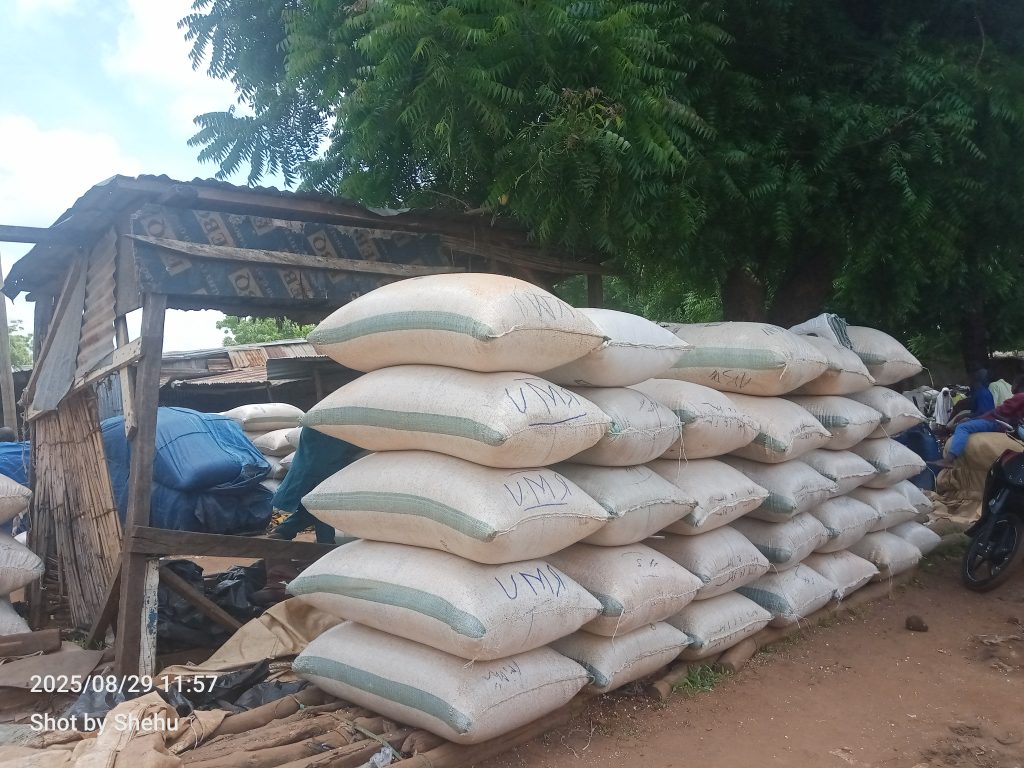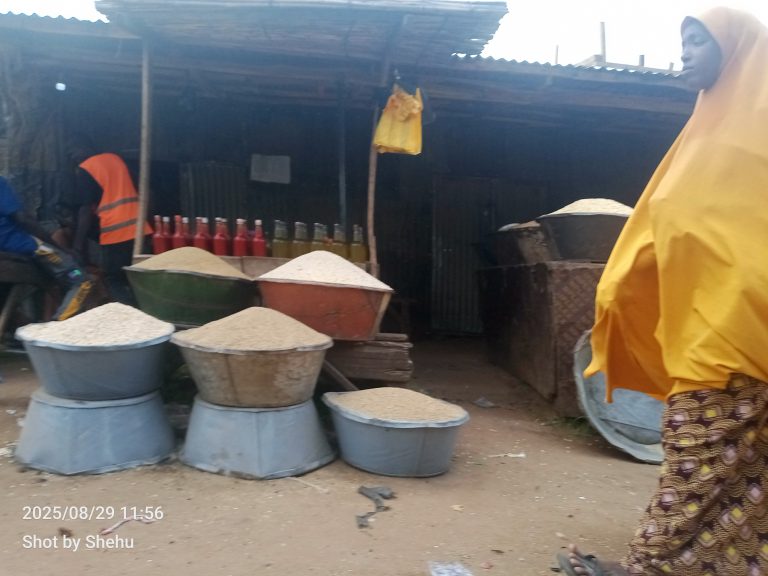As farmers begin harvesting their crops in Sokoto State, residents are celebrating a welcome relief, food prices are dropping sharply across markets. The harvest season, which kicked off this month, is already easing the burden of high costs that have plagued households for months.
The price reduction comes at a critical time, as northern Nigeria battles rising hunger and malnutrition. Reports estimate that about two million Nigerian children suffer from severe acute malnutrition, yet only two out of 10 get treatment. For many families, the falling cost of maize, millet, and rice is more than just good news, it is survival.
Across Sokoto communities, the mood is one of gratitude and hope. Farmers say the year’s bumper harvest is the result of favorable rainfall and government support, while residents welcome the relief at food stalls and grain markets where prices have dropped by nearly half compared to last year.
Farmers, residents rejoice
Aliyu Ɓagarawa, a farmer in Ɓagarawa community of Bodinga Local Government Area Sokoto state, said this year’s bumper harvest is something they can only thank God for, even though the harvest season has just begun.
Aliyu, 59, who planted beans and millet, explained that unlike in some years when rainfall was scarce, this year’s rain was sufficient. He said from the look of things, the harvest will be abundant, and he is pleased that the price of grains has dropped significantly.
“Last year, we harvested a lot. Now we’ve just started and don’t know how it will end because we cultivated many crops. I can’t rush to say this year is better than last year or the other way around, but you can already see the results on the ground,” he said.
Many observers believe that the ongoing harvest is the main reason behind the sharp decline in food prices in the markets.
To confirm this, ASHENEWS visited the Sokoto main grains market, and met Abdullahi Attahiru, who was buying maize. He expressed his delight and gratitude for the reduction.
“We are very happy now because previously, we suffered when one mudu of maize was sold at ₦2,700. Today, it is being sold for ₦1,200, and even as low as ₦900 or ₦700 in some local markets. Here in Sokoto, because of discounts, it is sold at ₦1,100,” he said.

Abdullahi added that he has also started harvesting his crops, describing this year’s farming season as a success.
“We local farmers began harvesting millet on Tuesday. Once it dries, we won’t need to buy food again. This year, we had enough rainfall and the produce is fantastic,” he said.
Bashir Aliyu, a grains seller in the market, also confirmed the price reduction. He explained that in previous months, maize sold for ₦1,600 – ₦1,700 per mudu, but is now ₦1,200. Millet, which was ₦1,800, now goes for ₦1,200, while beans dropped from ₦2,500 to ₦1,900 – ₦2,000.
For Aliyu, the reduction in price is a blessing from God. However, he urged food vendors to fear God and avoid exploiting buyers as prices continue to fall.
“Many food vendors are still exploiting people in Sokoto despite the reduction in prices. The price has gone down drastically, but they didn’t reduce the price of a plate of food. This is heartless and they should fear God,” Aliyu stated.
Grains dealers confirm the reduction
Dahiru Ladan, secretary of the Sokoto Grains Dealers Association, also acknowledged the significant reduction in commodity prices compared to last year. He noted that in 2024, a bag of millet sold for nearly ₦100,000 – ₦105,000, but this year, the price has dropped considerably to ₦35,000 – ₦45,000, and it keeps falling.
“One bag of old maize is now ₦45,000, while the new one is ₦28,000. Unprocessed rice is ₦32,000 -₦33,000, while processed rice sells for ₦110,000 – ₦120,000, compared to ₦150,000 – ₦170,000 per bag last year,” he explained.
Why are prices dropping?
As prices continue to drop, many people wonder about the reason behind this reduction despite the skyrocketing costs of grains in previous years and earlier this year.
Ladan noted that last year, there were several calls on farmers and governments at all levels to find ways of boosting agriculture in the country and importing food commodities to ease suffering. He said all indications show that the calls were answered.
He added that last year, the Sokoto State Government distributed fertilizer free of charge to farmers. “If people have enough fertilizer, even a small farm can yield more, as most of our people are farmers. They answered the call, ventured into agriculture, and now food is available while prices continue to fall,” he explained.
He also called on marketers to remain God-fearing in their businesses so as to continue bringing ease to society.


